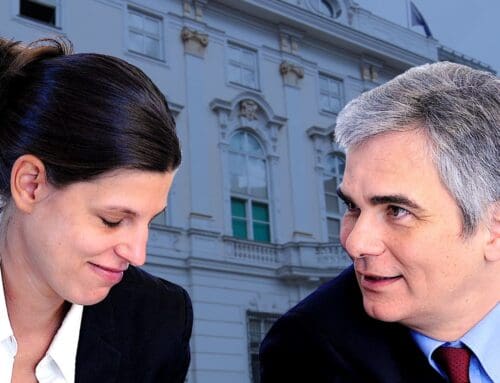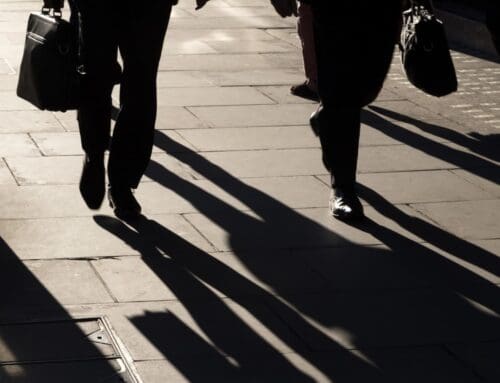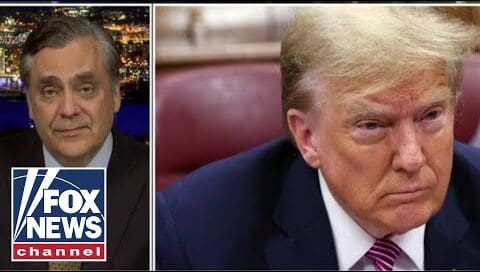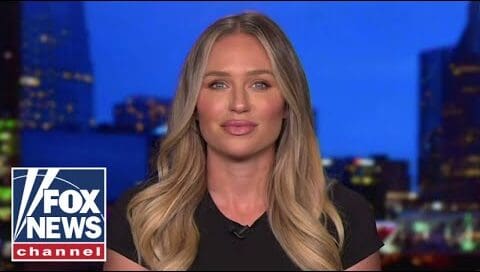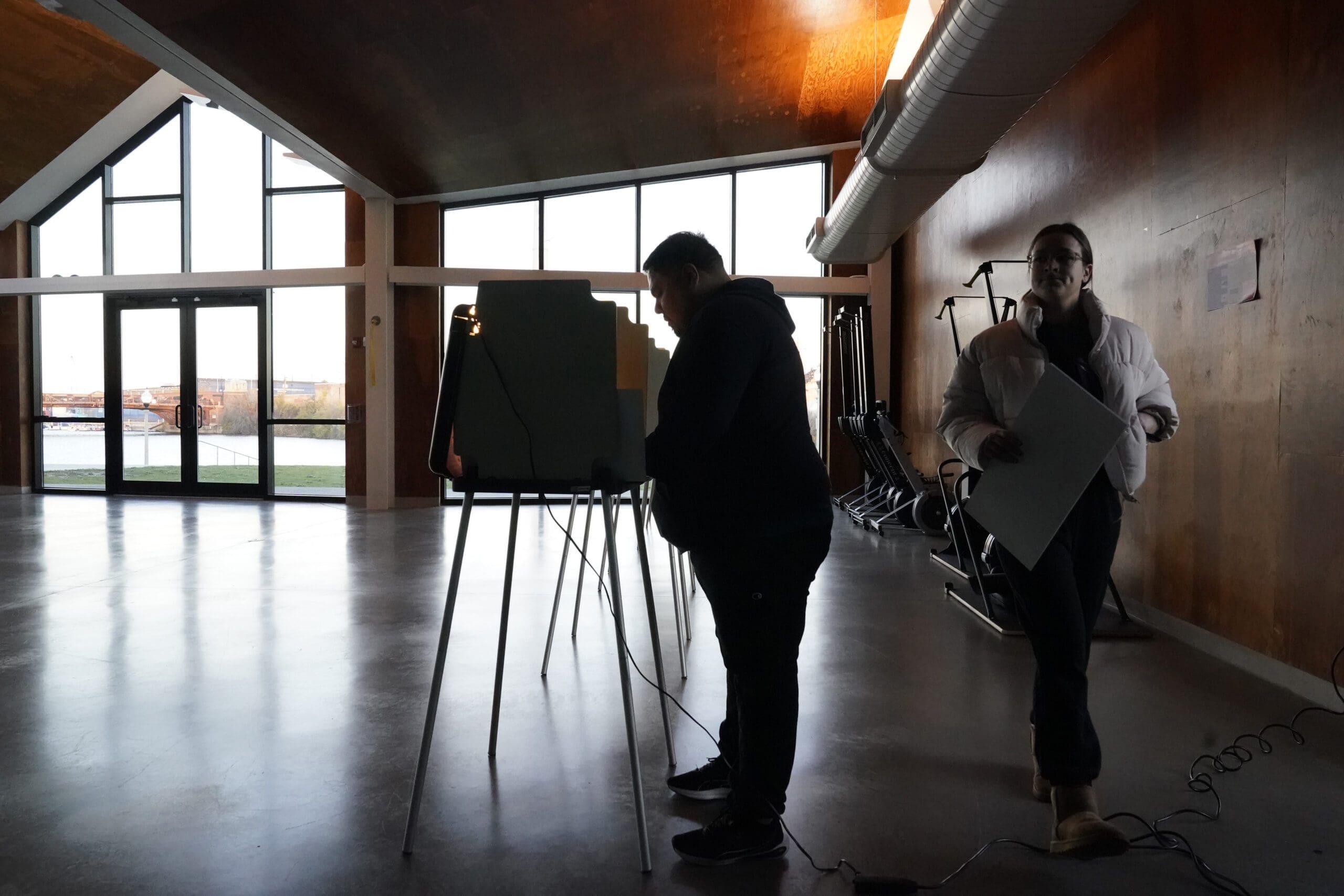
The lame duck could be the last chance for election funding before 2024

The 2024 election is two years away, but the upcoming lame-duck session may effectively be Congress’ last chance to fund it.
Election advocates are pushing Congress to include hundreds of millions of dollars in the government spending package under consideration before this Congress concludes just after the new year.
That’s not just because of the unpredictability of a split Congress next year, but also because funding that arrives in late 2023 or early 2024 could come too late for officials to be able to reliably plan on. “This is likely the last pot of funding that can make, really, a difference for the 2024 presidential election,” said Greta Bedekovics, the associate director of democracy policy at the liberal think tank Center for American Progress.
Most are cautiously optimistic that Congress will set aside money for election offices, assuming there is an agreement on a larger funding package, with appropriators in both chambers listing $400 million for funding for “election security grants” in initial announcements earlier this year.
But advocates are still worried about getting the total in the final bill, given the history of federal funding for elections and the general uncertainty that surrounds this end-of-year appropriations process, or that $400 million number being whittled down.
“What I’m most worried about is a situation where no one disagrees with the need for the funding,” said Sam Oliker-Friedland, a former Department of Justice attorney who is now the executive director for the Institute for Responsive Government. “But folks’ minds are elsewhere, and then it gets edged out by priorities that are more top-of-mind.”
Federal funding of elections has been sporadic over the last two decades, since the last major federal elections law — called the Help America Vote Act, which was a response to the chaotic 2000 election — passed in 2002. There were comparatively small grants from 2008 to 2010, according to a report from CAP, and then nearly a decade of no federal funding.
More recently, it has oscillated between significant funding — there were nine-figure grants in both 2018 and 2020 — and almost nothing: $75 million split between all the states this year, and nothing in 2021.
That, advocates say, does not come close to what officials need to replace aging election systems across the country, and to keep up with the rising day-to-day costs of election department budgets that include everything from new security needs in the aftermath of the 2020 election to the rising cost of everyday items like ballot paper.
There has been a quiet lobbying effort, spearheaded by a cadre of elections-focused groups, to have bipartisan state and local election officials reach out to congressional offices in an effort to secure the funding. Those involved have said members in both parties have been receptive.
“One of the most positive signals that we’ve had about the real viability of this being funding that we can get over the finish line is the fact that we’ve seen the bipartisan support for this grow even over the last few weeks,” said Tiana Epps-Johnson, the founder and executive director for the Center for Tech and Civic Life.
Advocates for the funding say that part of the pitch is that this year’s end-of-year fight over government funding is really the last chance to get meaningful federal funding to election administrators ahead of the 2024 election.
While some supplies can be bought at the last minute, larger purchases and staffing plans take months, if not longer, to finalize, meaning officials would need the money in 2023 to prepare for the presidential election the following year.
“There’s a variety of reasons that, from an operational perspective, election departments need this funding yesterday,” Epps-Johnson said.
Those pushing for the funding have argued that while the $400 million would be welcome, it doesn’t address a longer-term need for federal funding for elections.
Even so, the recent funding “accounts for a minuscule, minuscule fraction of elections,” said Ryan Williamson, a governance fellow at the conservative-leaning think tank R Street.
He added that the best estimate for the cost of an election nationwide is about $2 billion, which “could balloon to $5 billion in the near future.”
Advocates have long called for a more reliable, steady stream of funding for elections — hundreds of millions on an annual basis — that allows election officials to plan ahead and make longer-term purchasing decisions. President Joe Biden’s 2023 budget, for example, called for $10 billion in election funding from the federal government over 10 years, which was widely praised in the community even if it had little chance of becoming law.
Williamson and others have argued that the federal government is making planning for elections more challenging by not providing that longer roadmap.
“It’s not so much the dollar amount that matters,” he said. “It is the regular, predictable amount that allows them to plan and budget. Scraping together $485 million a few months before an election is helpful, but it is not the most efficient or effective.”
Rep. Mike Quigley (D-Ill.), who chairs the House Appropriations subcommittee that oversees the election funding spending, said at an event hosted by Roll Call and CTCL earlier in the month that he was confident the House would pass an omnibus bill this year. He said he thought the Senate would do the same, noting that both chambers had the $400 million number.
But he questioned whether a longer-term appropriations plan was in the cards with Republicans soon taking control of the House. “If the Republicans have a very narrow margin, their eccentrics will have an oversized influence on what they do,” Quigley said, noting that there has been some GOP resistance to election grants in the past. “I just don’t see that they are locked in on that yet.”


